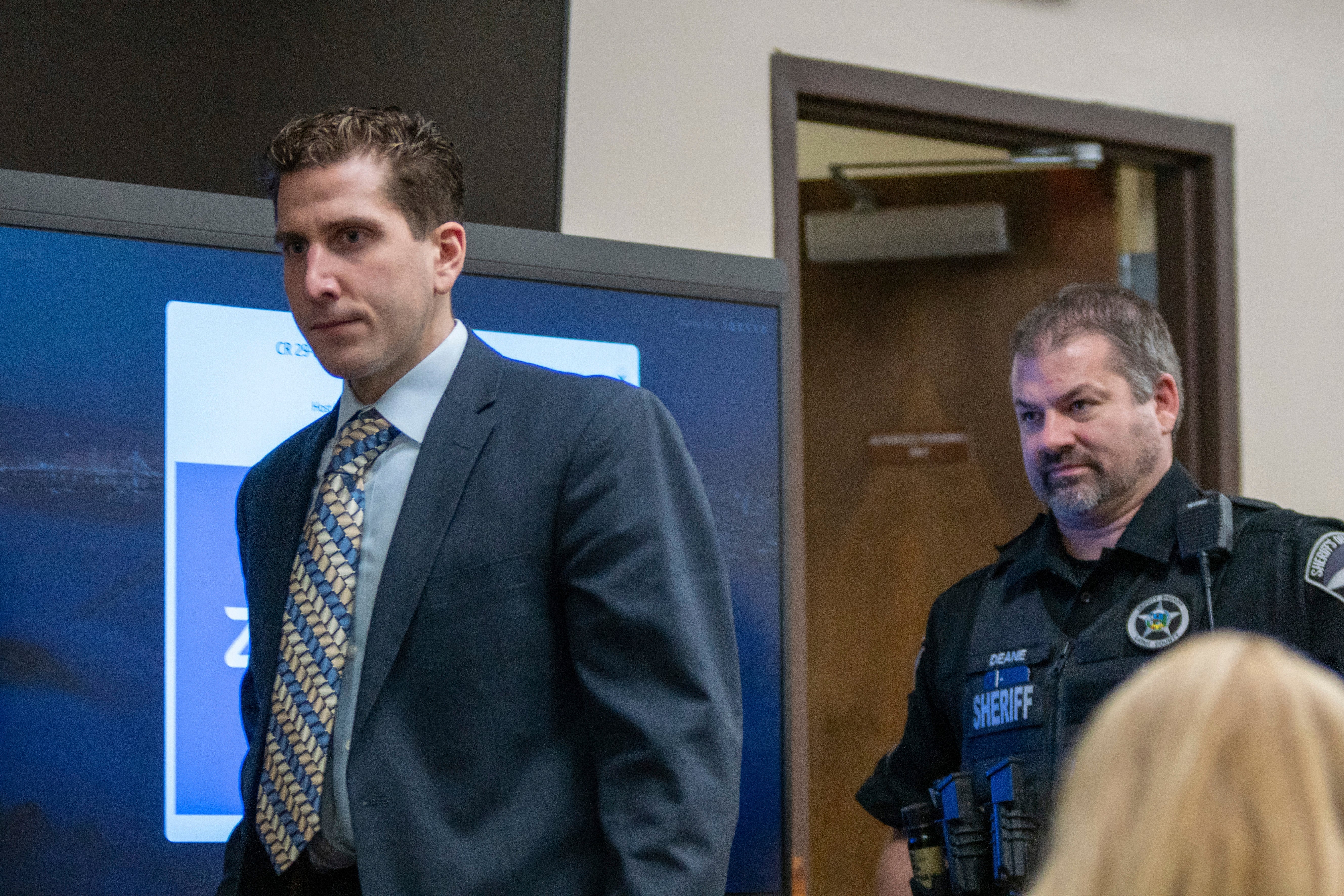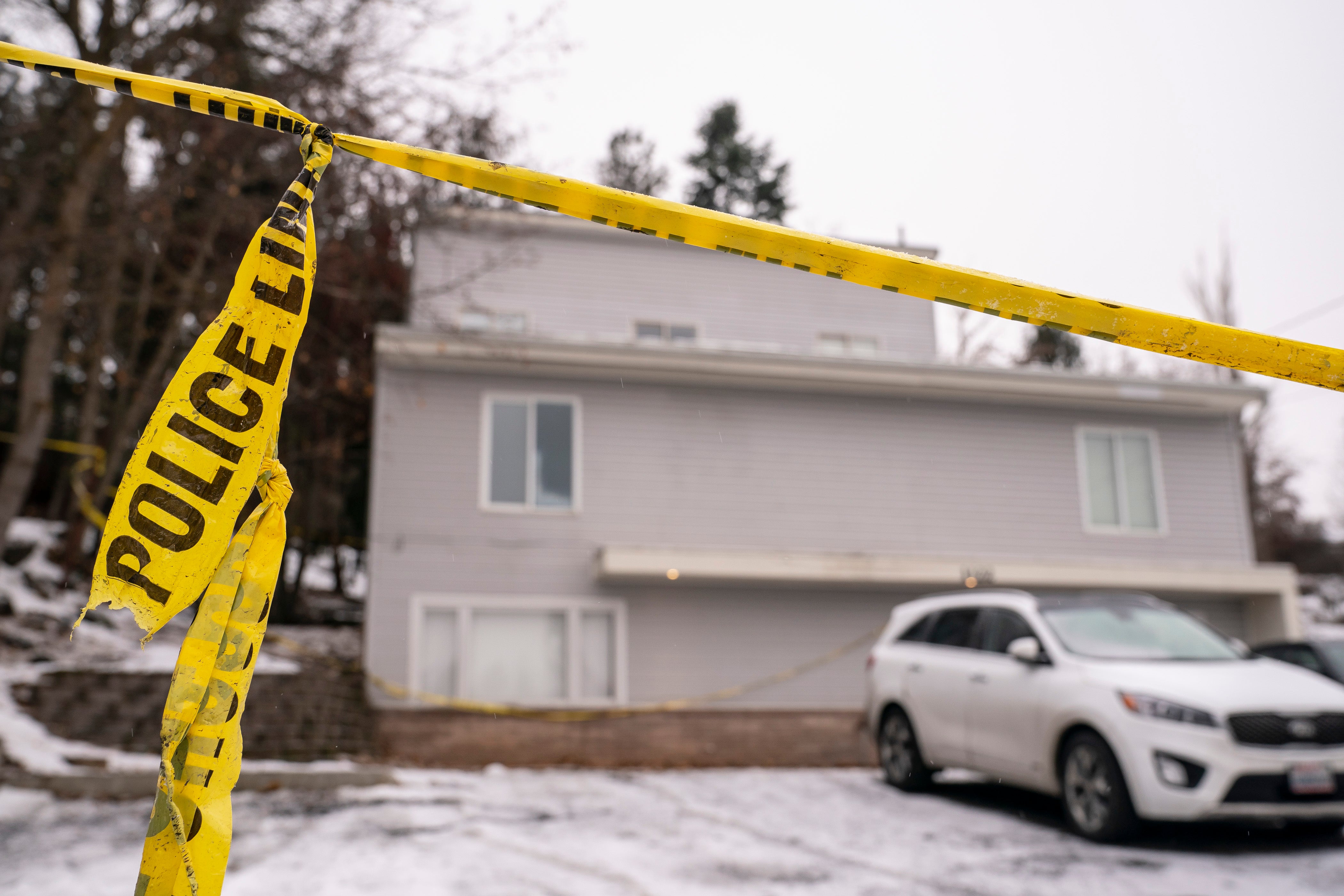Idaho prosecutors seek new trial date for accused killer Bryan Kohberger
Prosecutors asked Judge John Judge to schedule the high-profile murder trial for summer 2024 – in a bid to avoid times when university and high school students are in the swing of the academic year
Prosecutors in Idaho are seeking a new trial date for Bryan Kohberger, the man accused of breaking into an off-campus home in Moscow and stabbing four University of Idaho students to death.
In a new court filing on Thursday, Latah County prosecutors asked Judge John Judge to schedule the high-profile murder trial for summer 2024 – in a bid to avoid times when university and high school students are in the swing of the academic year.
“The State proposes that the Court schedule trial for the summer of 2024, and that the trial dates avoid times when Moscow High School and our area universities are in session,” the filing states.
“As the Court is aware, Moscow High School is directly adjacent to the courthouse premises and already the significantly increased amount of media and other vehicles related to this case has strained available parking as well as safety and convenience for pedestrians, including students.”
No specific date was recommended in the court filing.
However, the University of Idaho’s spring commencement – which closes out the semester – is scheduled for 11 May 2024 and Moscow High School’s classes end in the first week of June.
In the filing, the state is also asking the judge to set deadlines for the prosecution and the defence to turn over all discovery in the case, to disclose any expert witnesses who will be called to testify at trial, and to file any pretrial motions including motions about the death penalty.
Deadlines for jury questionnaire proposals, jury instructions, proposed witnesses and any other matters are also being sought.
In calling for a trial date, prosecutors argue that former Washington State University (WSU) student Mr Kohberger has had enough time to offer up an alibi for the night of the murders and so the matter should be closed.
Back in August, the accused killer finally provided a vague alibi, claiming he was driving around late at night on 12 November and into the early hours of 13 November when the killings took place.

However, he admits that there are no witnesses to back up his version of events.
The trial is expected to last around six weeks, with the state requesting that trial days run from 8.30am to around 3pm each day to allow jurors time to see to their personal affairs.
Prosecutors are asking the judge to arrange a status conference so that the trial date can be scheduled.
Mr Kohberger’s legal team has not yet responded to the filing.
His trial was originally due to start on 2 October 2024 but was delayed indefinitely in August when the accused killer abruptly waived his right to a speedy trial.
Last week, the judge threw out Mr Kohberger’s second bid to have his indictment dismissed.
The 29-year-old is facing the death penalty over the brutal murders of the four University of Idaho students Madison Mogen, Kaylee Goncalves, Xana Kernodle and Ethan Chapin.
In the early hours of 13 November, he is accused of breaking into an off-campus student home on King Road, Moscow, and stabbing the four students to death with a large, military-style knife.
Two other female roommates lived with the three women at the property and were home at the time of the massacre but survived.
One of the survivors – Dylan Mortensen – came face to face with the masked killer, dressed in head-to-toe black and with bushy eyebrows, as he left the home in the aftermath of the murders, according to the criminal affidavit.


For more than six weeks, the college town of Moscow was plunged into fear as the accused killer remained at large with no arrests made and no suspects named.
Then, on 30 December, law enforcement suddenly swooped on Mr Kohberger’s family home in Albrightsville, Pennsylvania and arrested him for the quadruple murders.
Investigators said he was tied to the murders through his DNA found on a knife sheath left on the bed next to Mogen’s butchered body.
The motive remains unknown and it is still unclear what connection the WSU PhD student had to the University of Idaho students – if any – prior to the murders. The murder weapon – a fixed-blade knife – has never been found.
As a criminal justice PhD student at WSU, Mr Kohberger lived just 15 minutes from the victims over the Idaho-Washington border in Pullman.

He had moved there from Pennsylvania and began his studies there that summer, having just completed his first semester before his arrest.
Before this, he studied criminology at DeSales University under renowned forensic psychologist Katherine Ramsland who interviewed the BTK serial killer and co-wrote the book Confession of a Serial Killer: The Untold Story of Dennis Rader, the BTK Killer with him.
He also carried out a research project “to understand how emotions and psychological traits influence decision-making when committing a crime”.
Now, the student home where the murders took place is scheduled for demolition next week – a decision that has divided the families of the victims.

